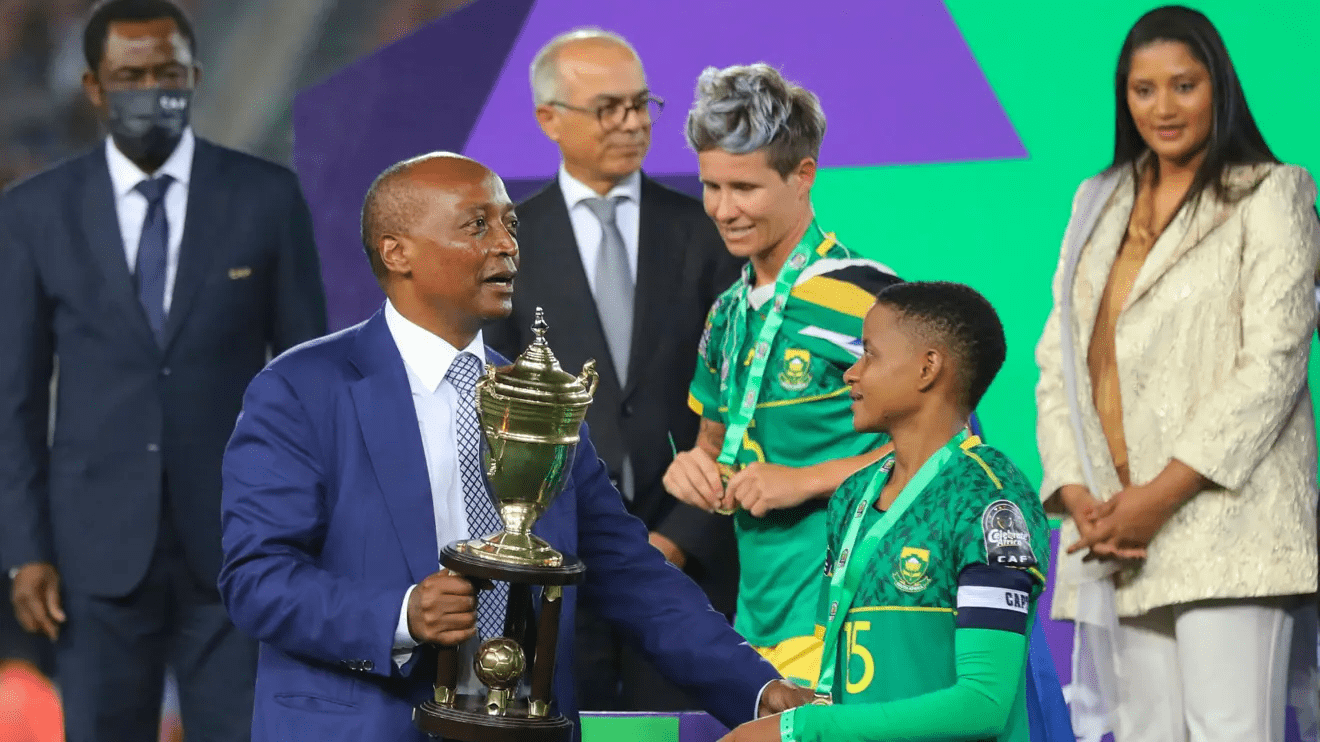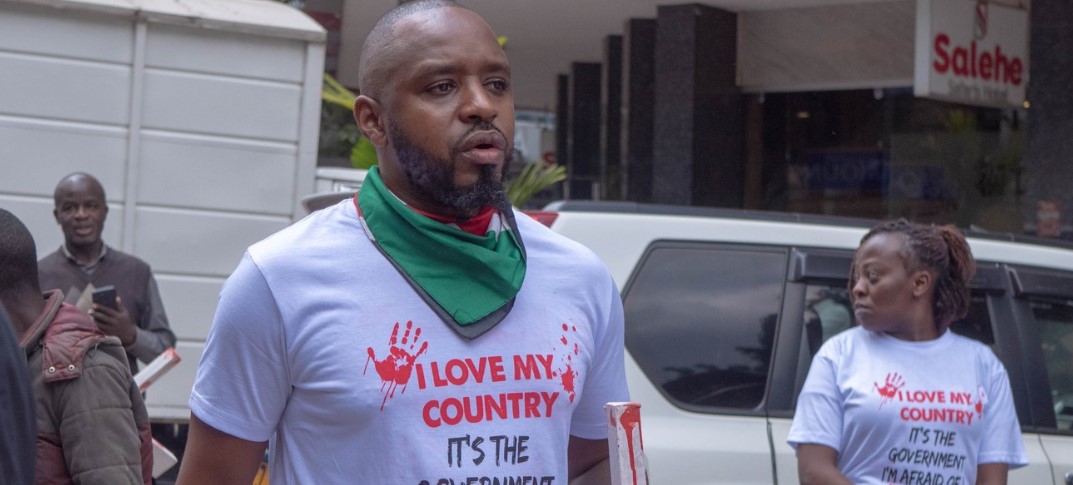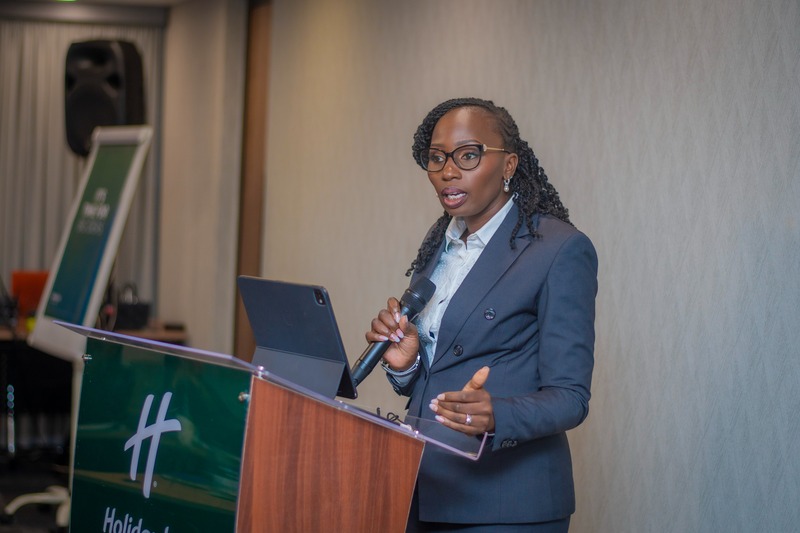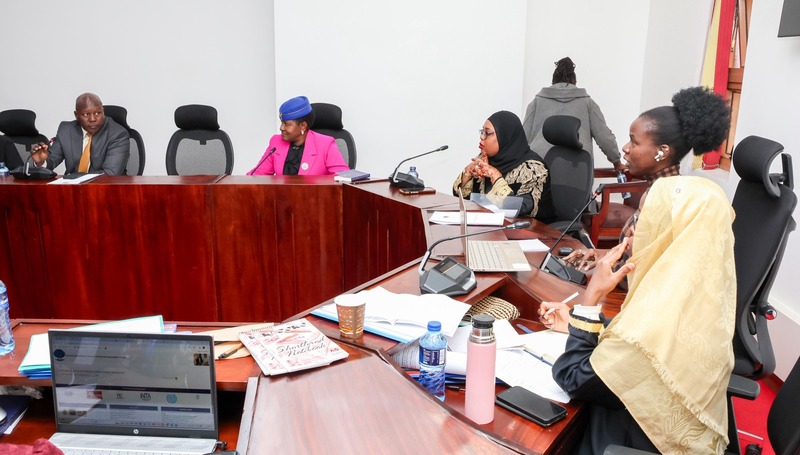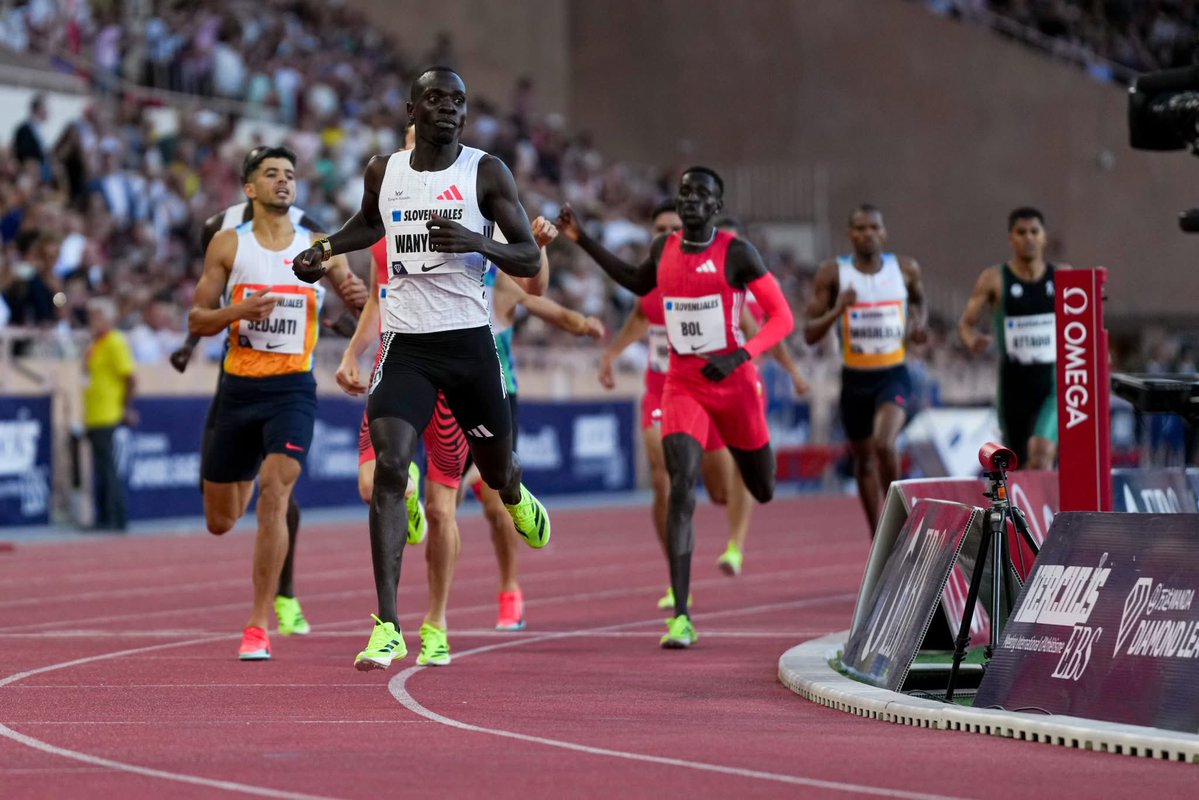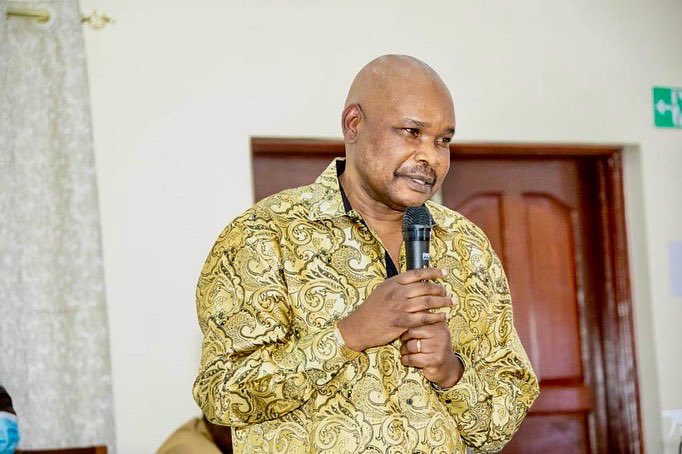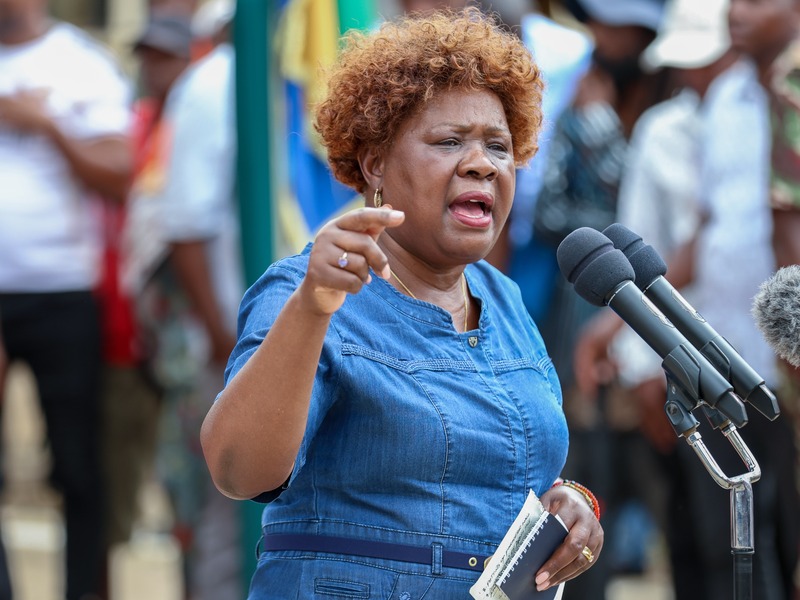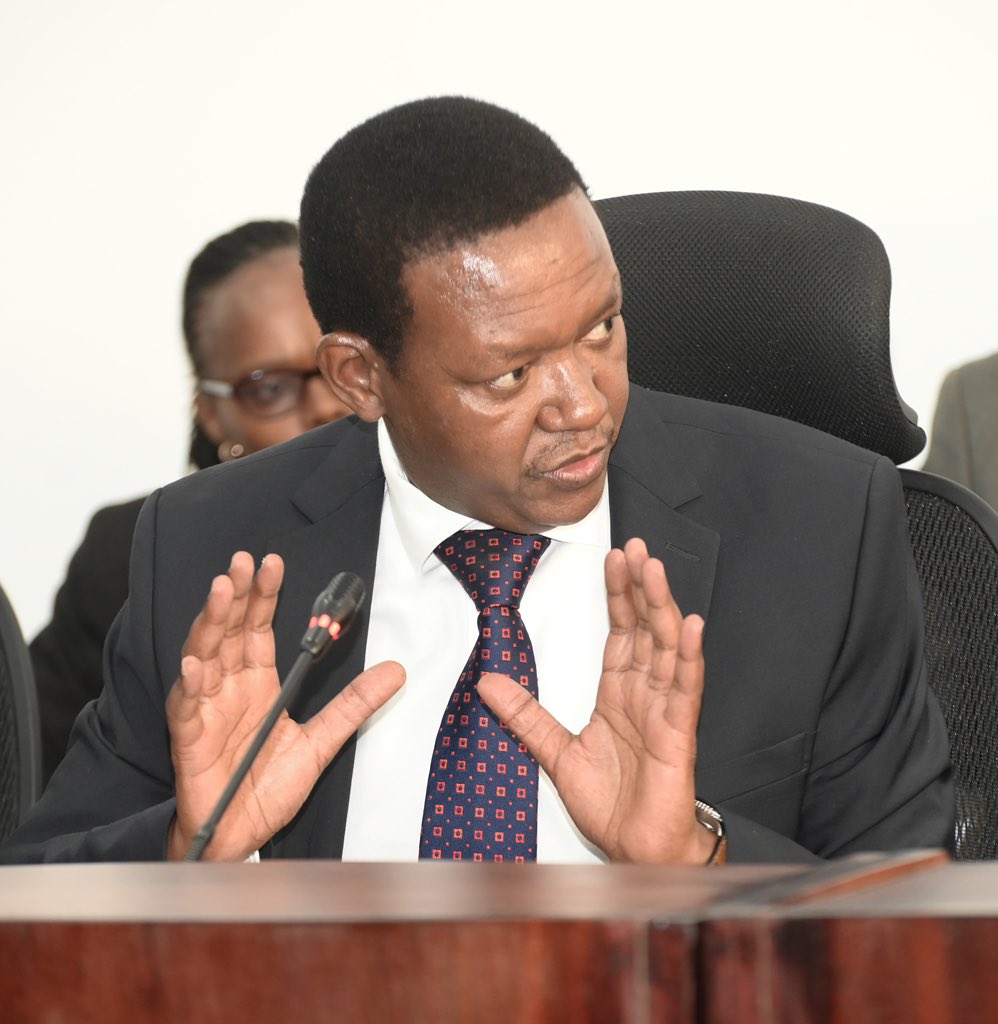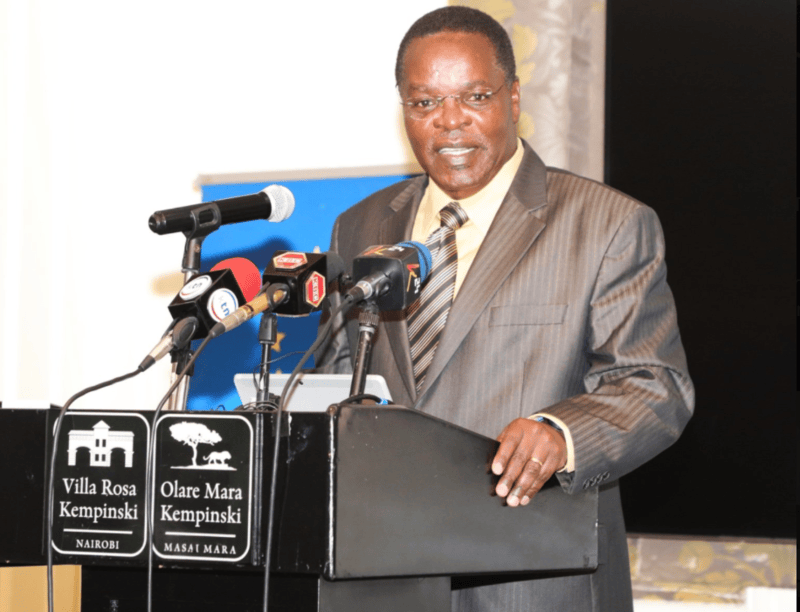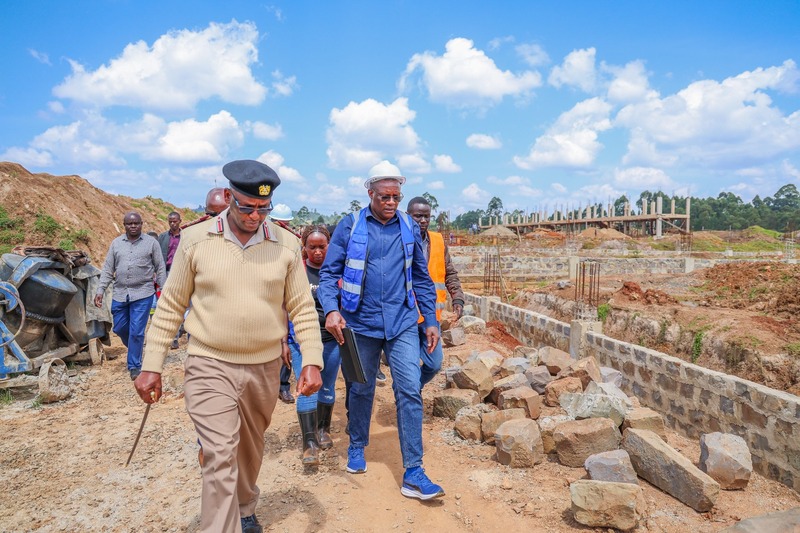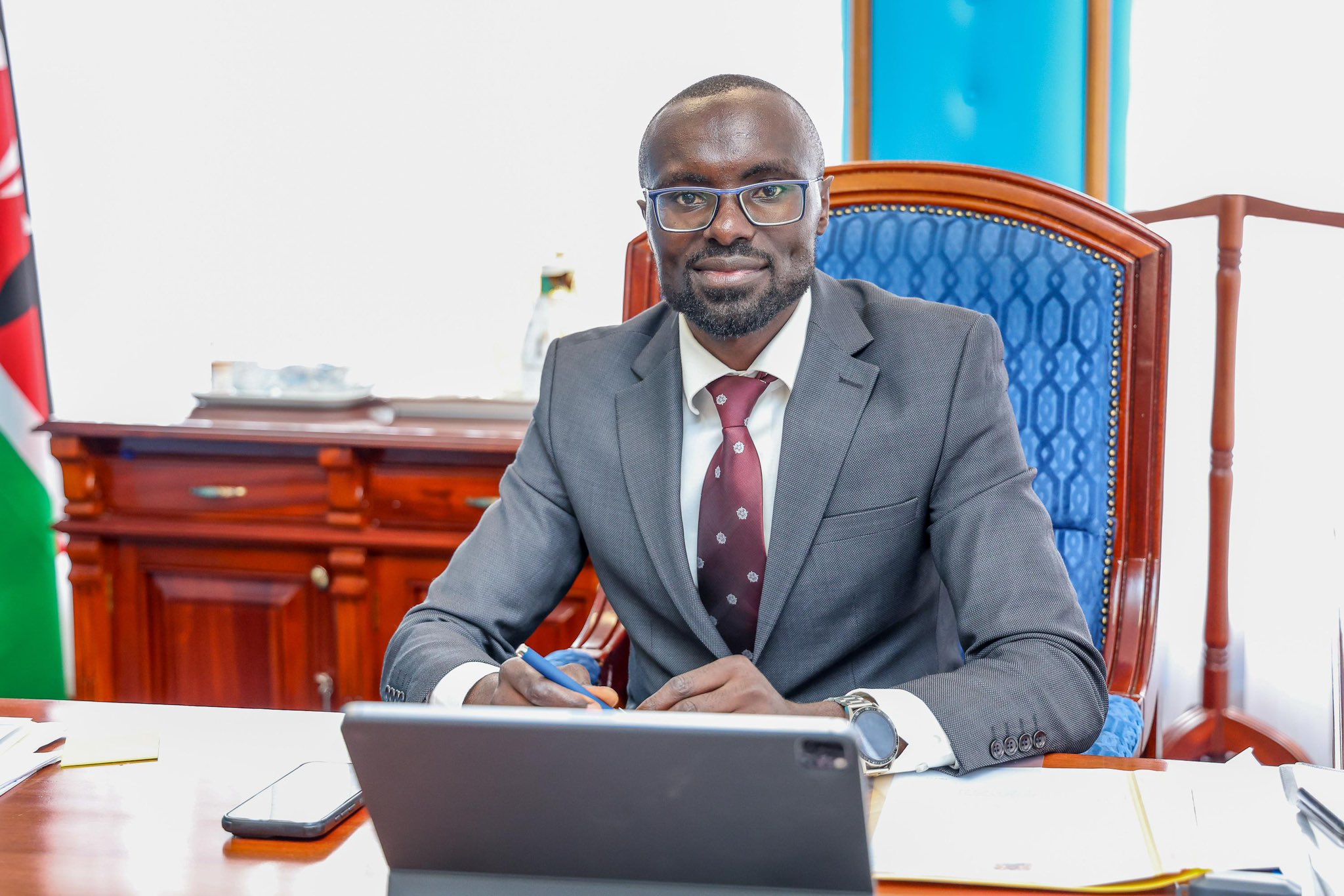Women breaking barriers in male-dominated maritime jobs
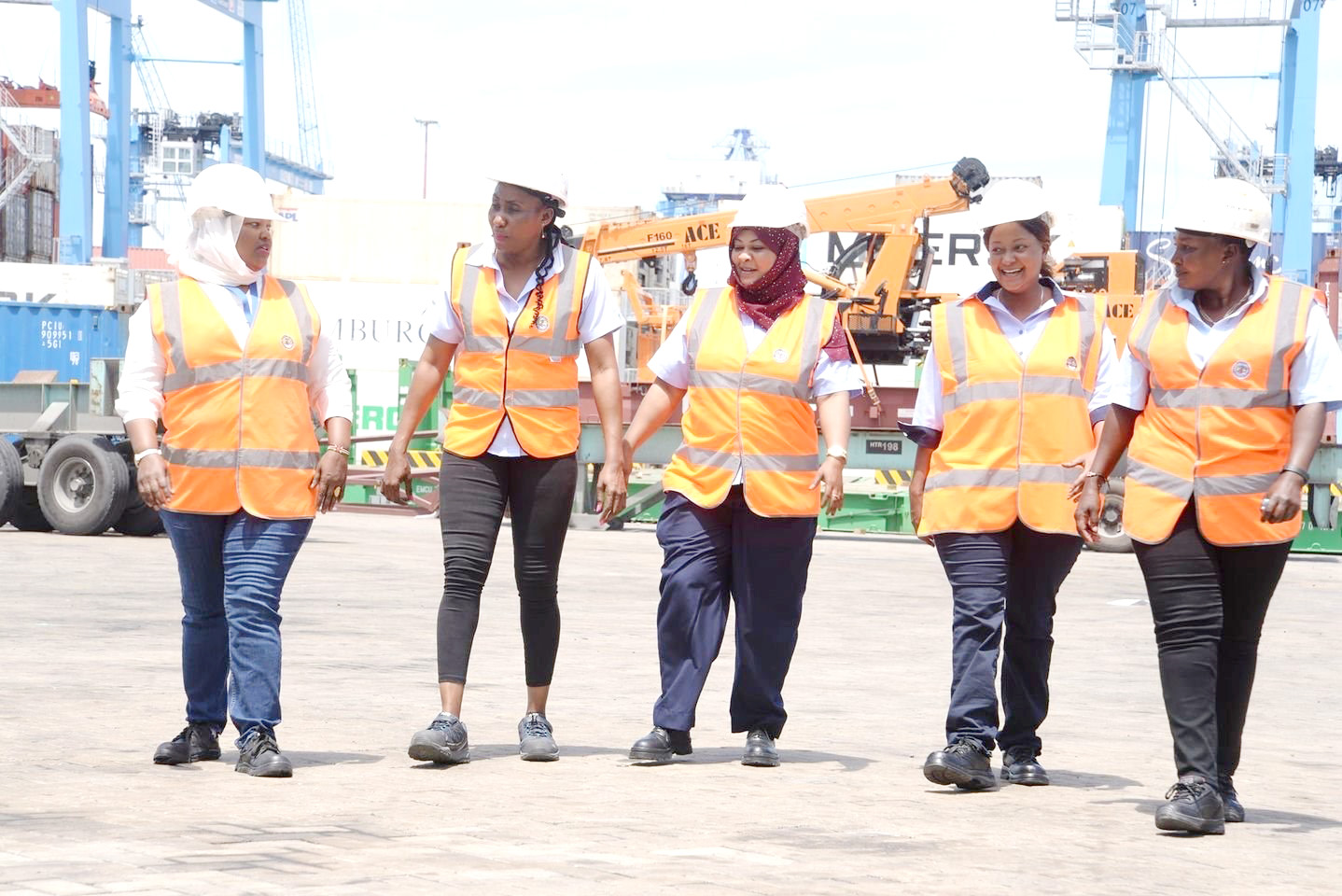
There are various challenges, particularly the long periods seafarers spend away from their families, which can deter many women
At just 26, Scovia Anyango found herself embarking on unexpected journeys across the world's seas, something she previously never dreamed she would be part of.
Her childhood dream was to be a doctor, but she did not attain the necessary grades to pursue the course. That did not, however, stop her from pursuing other careers.
More To Read
- Unpaid work and bias still lock women out of key economic roles- experts
- Authority intervenes to end student unrest at Bandari Maritime Academy
- Bandari Maritime Academy students protest over fees and training challenges
- Bandari Maritime Academy launches strategic plan with new exchange programs
- Bandari Maritime Academy refutes claims of international employment ineligibility of its seafarers
- Relief for seafarers as government reduces maritime training fees to Sh15,000
As the world marks the third International Day for Women in Maritime, Anyango comes out as one of those challenging stereotypes in an industry dominated by men.
The International Maritime Organisation (IMO) Assembly established this day with a resolution in 2021. This year's theme, “Safe horizons: women shaping the future of maritime safety”, speaks of the strides that need to be met to ensure more women enrol for maritime courses.
Inspired by her father during a stroll in Mombasa in 2016, Anyango decided to venture into a career with few women.
After exploring options in aviation, she settled on maritime studies, eventually enrolling at the Bandari Maritime Academy.
Anyango began her diploma in Nautical Science in February 2016, becoming one of the few women in her class. Her determination led her to an internship at the Kenya Ports Authority, where she worked with mobile cranes and specialised in rope work, including splicing and hitches. She completed her diploma in 2019.
“Being at the mobile cranes centre was an eye-opener,” she recalls, noting that she learned about different types of rope work, which is crucial for lifting containers and ensuring their secure handling.
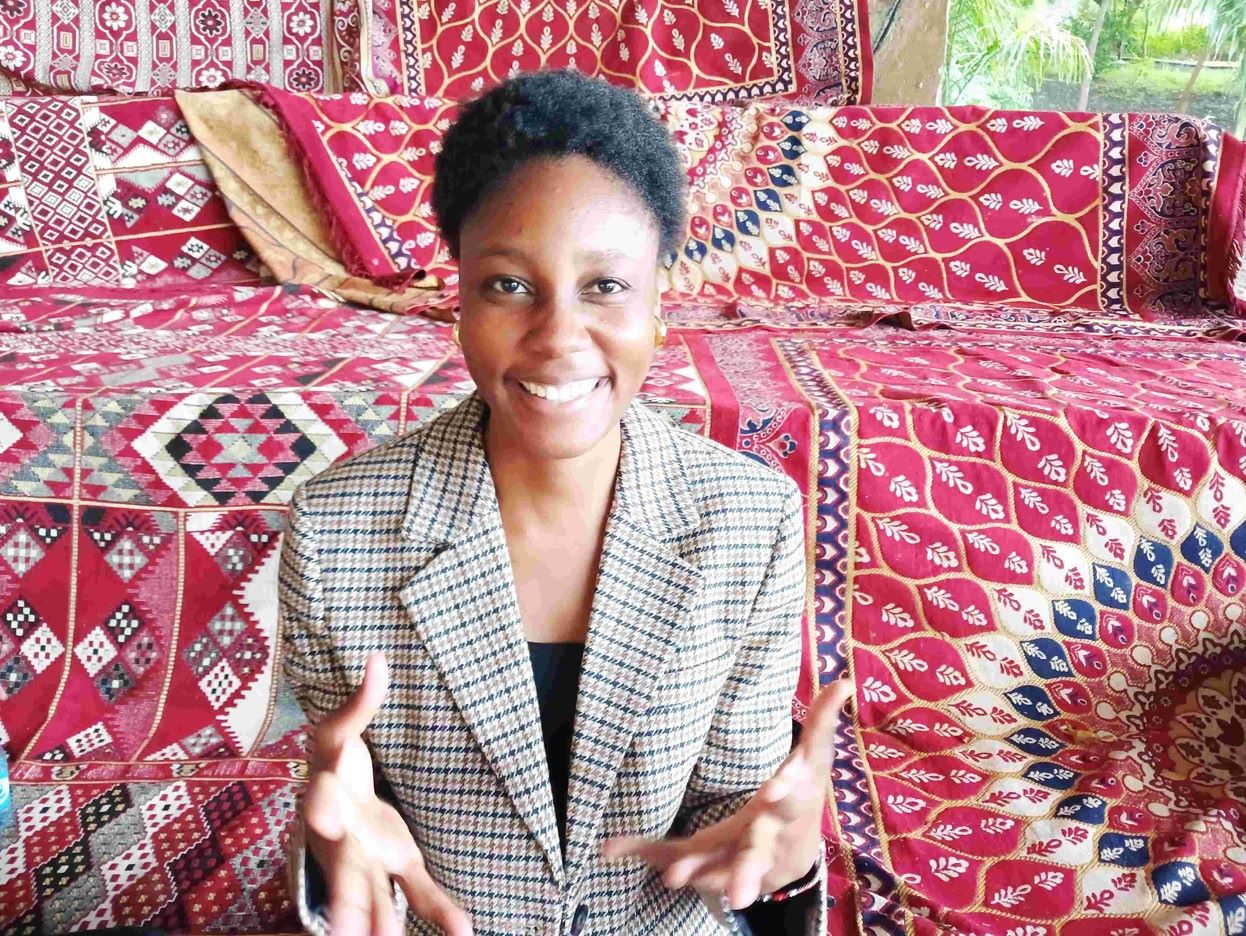 Scovia Anyango; Photo: Farhiya Hussein
Scovia Anyango; Photo: Farhiya Hussein
She later went for the Standard Training Certification for Watchkeeping (STCW) in 2021 which equipped her with essential skills for her future career.
In early 2022, Anyango secured a cadet position with Alfoss Energy Limited, where she faced the challenges of a 50/50 split between easy and difficult tasks.
“The job is not easy. It involves a lot of maintenance work, including bunkering, scraping, and cleanliness. When ropes are damaged, we repair them. We worked locally. That means I had no sea time,” she says.
Her resilience was tested when her contract ended abruptly after six months.
“It was a moment of giving up. But then I got a call for an interview with a cruise vessel, MSC Cruises. I reported the next day and was taken on as an ordinary seaman.”
This was her first time undertaking a sea job.
"During my first time at sea, I dealt with ship maintenance. I primarily focused on deck structures and ensuring the proper care of ropes during arrival and departure.”
But it was not an easy triumph for Anyango. She recalls the challenges of being the only woman who at the time worked deck jobs on the s ship, a male-dominated field.
“When I entered the ship the male colleagues seemed shocked that I was the one who would be joining them. However, I persevered and, despite moments of doubt and isolation, I found strength in my mantra 'monkey see, monkey do’, pushing myself to excel in tasks and earning the respect of my peers."
Days went by, and she got an opportunity for a second sea job.
In November 2022, Anyango joined the MSC Seaview, navigating routes between Europe and South America.
Her responsibilities included ship maintenance and managing deck operations. Despite the physical and emotional challenges, she thrived in her task, becoming a role model for women in the industry.
She returned to Kenya on April 23 this year. She will be resting for three months before going back to the sea.
“I urge the young ladies to join the sector because there are very few women in this field. There will be a lot of hiring of women as seafarers, so they can consider sea kinds of jobs. You can travel around the world for free.”
Anyango’s goal is to pursue more training from reputable institutions outside Africa and take online courses to enhance her skills.
But not every person who finishes school gets to join the sea job immediately.
Malhassen Hussein, another trailblazer, joined Bandari Maritime Academy in 2018 for a two-year craft certificate course in marine engineering and later pursued a diploma in the same field for two years. She concluded her courses in July last year.
Although she has not yet gained experience at sea, Malhassen's dedication and passion exemplify the potential for women in maritime engineering.
“During my studies, I faced challenges, but they were not insurmountable. It all depends on your attitude, discipline, determination, hard work, and passion,” she says.
“I am yet to get an opportunity to have a sea time but I look forward to it.”
Initially aspiring to be a lawyer, 25-year-old Phyliss Muthoni from Murang’a also took an unconventional path. She shifted her focus to maritime studies, enrolling at Bandari Maritime Academy for a diploma in Nautical Science in December 2022.
Muthoni is excited about the opportunities for women in maritime work, recognising the potential for financial independence and societal contribution through well-paying seafaring jobs.
“At first, I was scared because these jobs mean being away from family for long periods. But when you weigh the limitations and advantages, the benefits are immense,” she says.
Muthoni says her relatives in Mombasa encouraged her to join the maritime field.
“I am excited that women are joining the sector. It was previously perceived as a male-dominated field, but that is changing as more women enrol for these courses. This is a thrilling journey for me as a woman, and I am excited about the opportunities ahead,” she says.
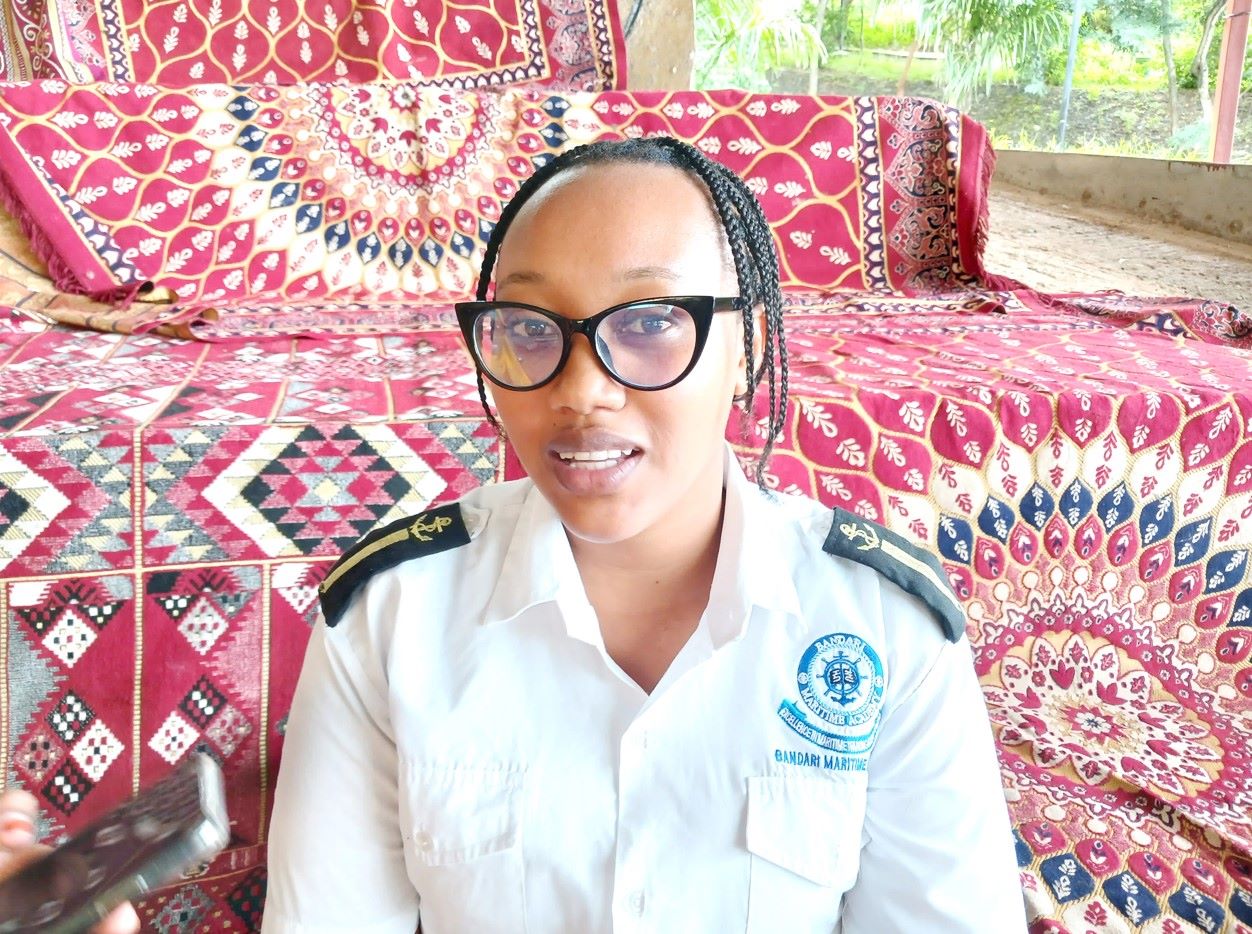 Phyliss Muthoni. Photo: Farhiya Hussein
Phyliss Muthoni. Photo: Farhiya Hussein
According to Muthoni, women are breaking barriers in the maritime sector. She says her inspiration comes from people like Betty Makena, who tirelessly advocates for the welfare of seafarers, and Elizabeth Marami, Kenya's first female ship pilot.
“Additionally, Kenyans have opportunities to work on ships from other countries. To any girl uncertain about her path after high school, consider joining Bandari Maritime Academy to explore marine studies and embark on an exciting career in the maritime industry.”
Dr Eric Katana, the director-general of Bandari Maritime Academy, says women seafarers have been very instrumental in maritime matters. He says the government has ensured the training is affordable by reducing fees.
He says the academy has incorporated four additional courses designed to broaden opportunities for women and the youth.
“Apart from the basic courses, we have ensured these new programmes enable more participation in maritime training, allowing them to work on ships and vessels.”
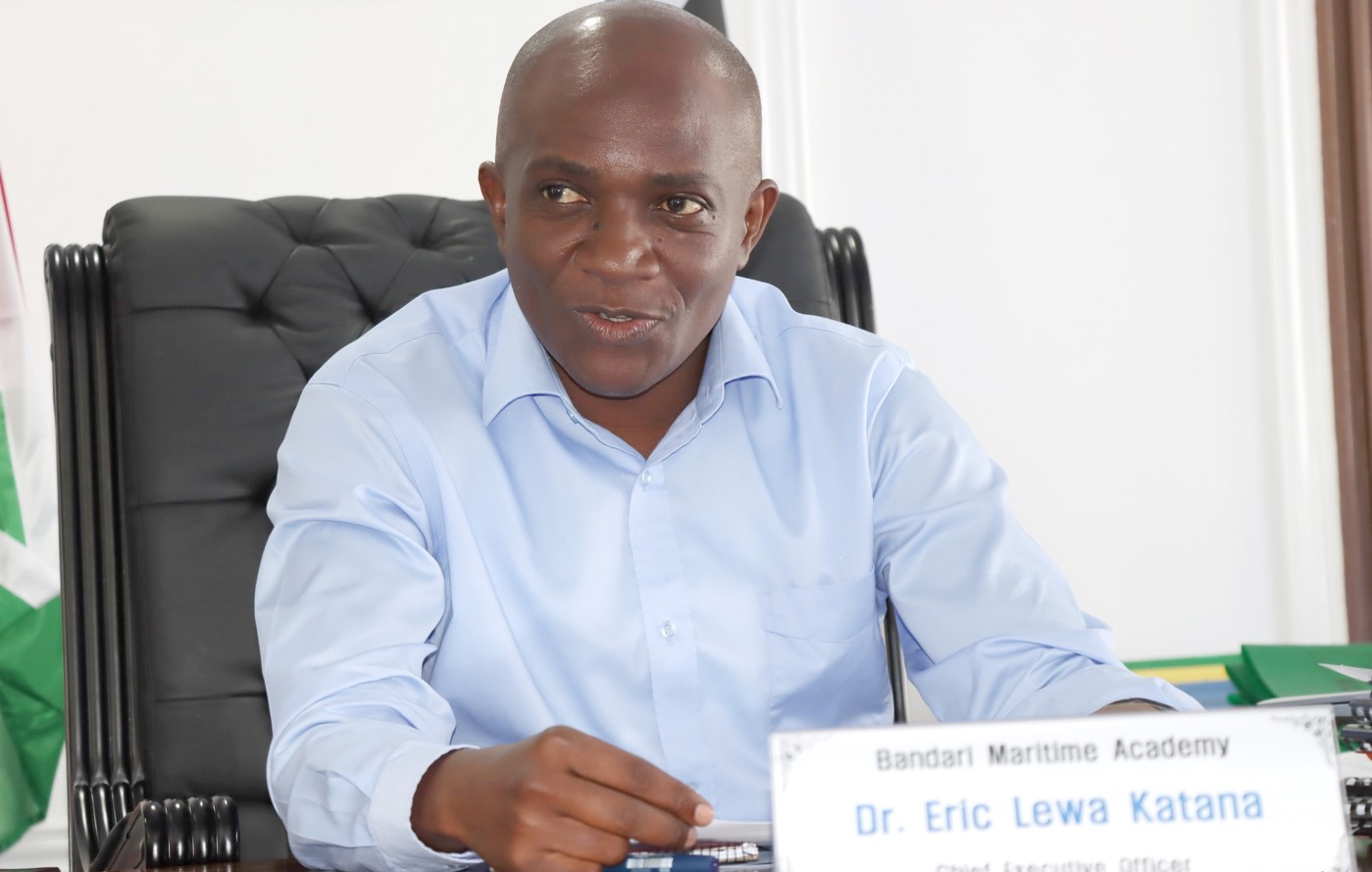 Dr Eric Katana, Director General, Bandari Maritime Academy. Photo: Farhiya Hussein.
Dr Eric Katana, Director General, Bandari Maritime Academy. Photo: Farhiya Hussein.
Katana says the academy has been actively marketing itself and sensitising the public about maritime education.
“Maritime education and training are not as well-known as courses offered in conventional universities. We are increasing our presence on social media spaces, participating in radio and TV shows, and visiting schools. We aim to inform the girl-child that these courses are available and beneficial for both girls and boys,” he says.
He notes the presence of several alumni comprising women who are thriving in their careers at sea and their testimonies help break the misconception that maritime is a male-dominated field and show that it offers ample opportunities for all.
He, however, acknowledged there are various challenges, particularly the long periods seafarers spend away from their families, which can deter many women.
“Completing a marine-related course requires a sea attachment of not less than six months. Specifically, engineering students must spend six months at sea, while nautical science students must complete a one-year sea attachment to qualify for on-board work. We are actively working to demystify this and highlight the opportunities available for women in the maritime industry,” he said.
Top Stories Today


